Have you ever wondered how our grandparents used to vaccinate or treat chickens back then? They had no Virukill, ESB3, or even some of these synthetic medicines we keep in our poultry veterinary kits.
The secret to healthy chickens was the use of natural herbs.
This article will cover some of the herbs and their benefits.
1. Black Pepper
- Contains a lot of vitamins and nutrients.
- Functions as an anti-inflammatory, antibacterial, and antioxidant.
- Helps flush toxins and absorb nutrients from its food sources.
- Chickens are prone to respiratory problems. Adding a few pinches of black pepper to their feed or in their water can help prevent respiratory problems and ease coughing.
2. Cayenne Pepper
- Add pepper to chicken feed or water to boost egg production.
- Worm diseases are known to hamper the flock’s ability to reproduce in which cayenne pepper is a very effective remedy.
- Cayenne pepper burns parasites that make their way into the digestive system.
- Simply add half a teaspoon of cayenne pepper to your chicken feed as a natural way to deworm them.
3. Oregano
- The essential oil of Oregano is a natural antibiotic.
- Given to chickens in the form of an essential oil, fresh or dried to help prevent coccidiosis, blackhead, ecoli, avian flu, and bronchitis.
- Add dried oregano to feed or water or simply sprinkle them in the brooder or coop as a free choice snack.
- Add extra oregano to the diet of laying hens to give them an added immune system booster.
4. Cinnamon
- Cinnamon reduces inflammation and boasts of anti-infectious, antibacterial and antioxidant properties as well.
- It also aids in the prevention of neurological disease.
- Helps enhance blood flow to the feet, wattles, and combs to ward off frostbite.
- May help with the prevention of congestion, coughing, infection, and respiratory problems.
5. Turmeric
- Turmeric is best known for its powerful antibiotic and anti-inflammatory properties.
- If your chickens get “Bumblefoot” (intense and highly visible swelling of the foot or lower leg), turmeric can help.
- Chicks that are unable to hold their head up properly can benefit from adding a pinch of turmeric to their feed.
- Turmeric also helps boost a hen’s immunity to fight infection by adding 1/2 teaspoon to their feed.
6. Salt
- Chickens, just like the rest of us, need to steer clear of too much salt. But, the delicious spice should still be kept in your natural remedies tub for emergencies.
- During the hot summer months, salt might be essential to treating a flock suffering from heat exhaustion.
- It makes a great homemade electrolyte for chickens.
- Mix together 1 cup of water, 1/8 of a teaspoon of salt, 1½ teaspoons of sugar, and 1/8 of a teaspoon of baking soda to make the natural electrolyte
- Offer the mixture to the flock members suffering from heat exhaustion or mix it into their water.
- To help cool the flock, freeze one of their favourite healthy treats in an ice cube tray and serve.
7. Garlic
- Garlic not only helps boost the respiratory and immune systems, it also helps to repel ticks, mites, lice and other common parasites who like to claim the members of your flock for their new home.
- It also serves as a natural dewormer and may even reduce the stench of manure by adding to the feed on a regular basis.
- You can also float whole cloves in the waterer to administer the spice to your flock.
- Sprinkle a pinch or two of garlic powder over dry feed as a natural health supplement for the flock.
8. Apple Cider Vinegar
- Add a teaspoon of the vinegar to the water twice a week during the warm weather months to help boost calcium absorption.
- It is known that hens struggle with calcium absorption in summer far more than any other members of the flock.
- As a result, drop in calcium will likely cause laying issues and negatively impact egg shell hardiness.
9. Ginger
- If a member of the flock has lost its appetite, ginger just might do the trick and spark a desire to eat again.
- The spice is also often used to help ease an upset stomach, reduce congestion, and as an immune system booster.
- Ginger also boasts strong anti-inflammatory and anti-viral properties.
- Add a small pinch of dried ginger to feed or cast inside the chicken habitat as a free choice supplement.
- A pinch of dried ginger can also promote the production of large eggs.
Conclusion
If you do not have a herbal garden, its high time you plant some of these herbs in and around your poultry house. Your chickens will love the varied diet and they will pay you will good quality eggs and meat.
Did you find this article helpful? Leave a comment below or subscribe to my free Email Newsletter and also like The Poultry Shop Facebook page. Thanks!
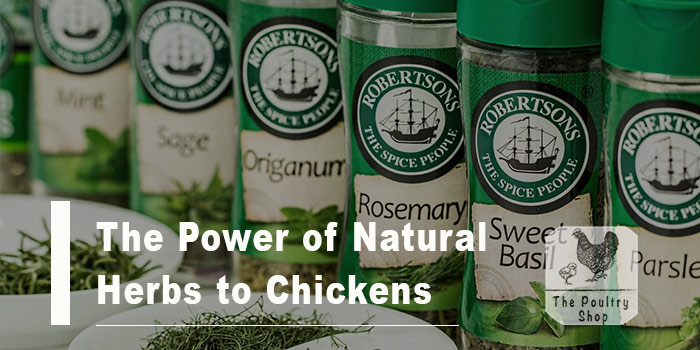
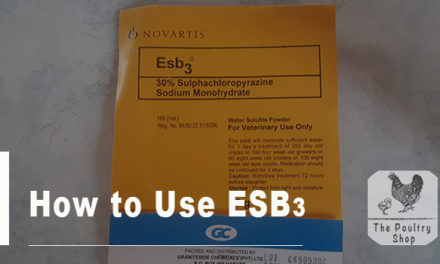
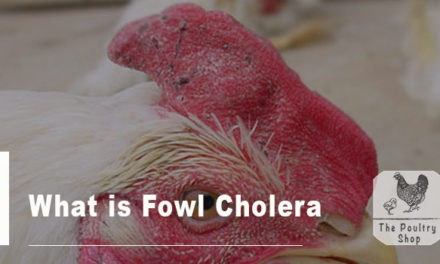
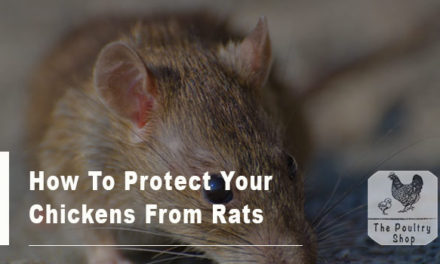
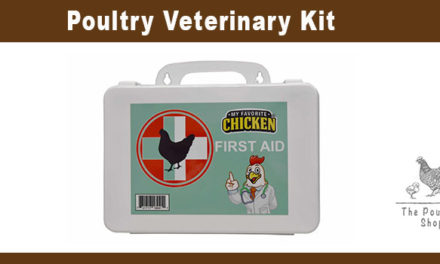
Afternoon Coach Allen
Thank you for the feeding regime , very helpful . Thanks for pointing out that I should use accurate scales . I use cage system . What is your recommendation Coach , for the lighting programme to maintain the 16 hour daylight , can I use bulbs or fluorescent lights ? What level of intensity is needed ?
Many thanks again
Regards
Charles Gideon
Hi Charles, yes 16hrs of light is recommended for the birds to lay pretty well and either bulbs or fluorescents work well. Some use equipment to measure light intensity which you can get from local poultry shops.
Light intensity of 25-30 lux during early laying period and 30-50 lux for mid to late laying period is recommended.
Where equipment is not available, light intensity can be measured by trying to read a newspaper on the floor while one is standing. If you can’t read then you need to increase light intensity – increasing number of bulbs, cleaning the bulbs, using light source with more wattage.
Afternoon Allen , thanks so much for the Posts , we are very grateful and proud of you for your unwavering support you give us new chicken farmers. On Layers , how many times should I feed them in a day ? What are the ideal times to feed them ? Many thanks again.
Glad you are finding the articles useful Charles. From 18weeks onwards you should feed layers 120g per bird per day. If you have 100 layers it’s 12kgs per day. You need to use a proper scale for accurate measurements.
Option 1: If you are using cage system, you can choose to give 60g in the morning around 7am and the other 60g later afternoon around 5pm. In between, you only supplement with herbs or green vegetables to avoid boredom for instance.
Option 2: If it’s a deep litter system (open plan), some choose to give the 120g per bird all at once say in the morning for instance at 10am. The advantage being that bullies can eat and whilst they move over to drink some water, the other weaker ones also get a chance to eat. This may not be possible if you give 2 portions per day in the deep litter system as bullies may eat all the food since the portions will be smaller.
Hope this helps..